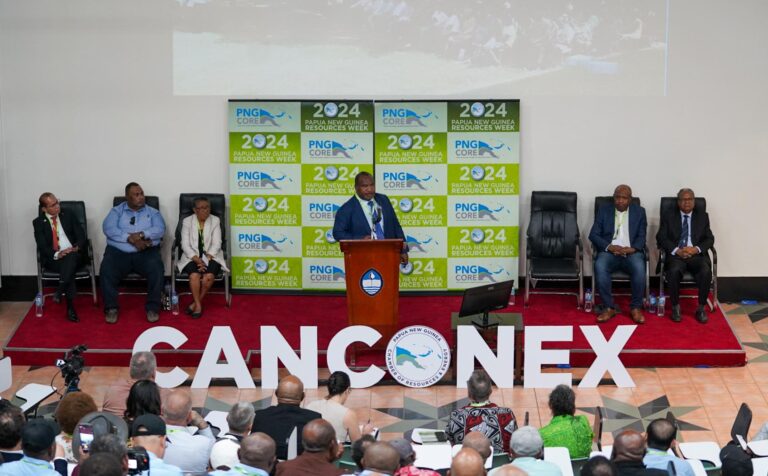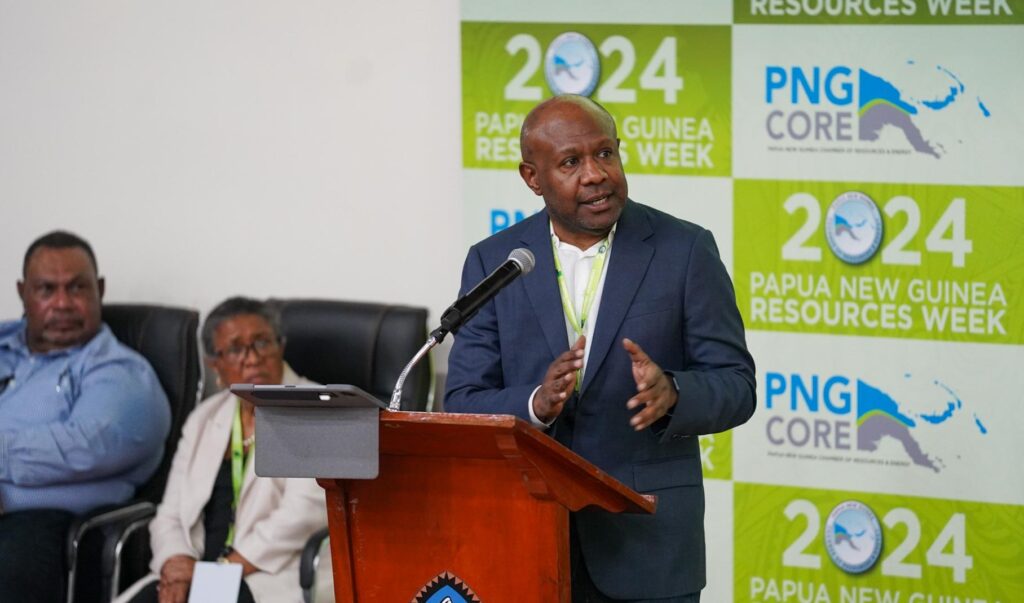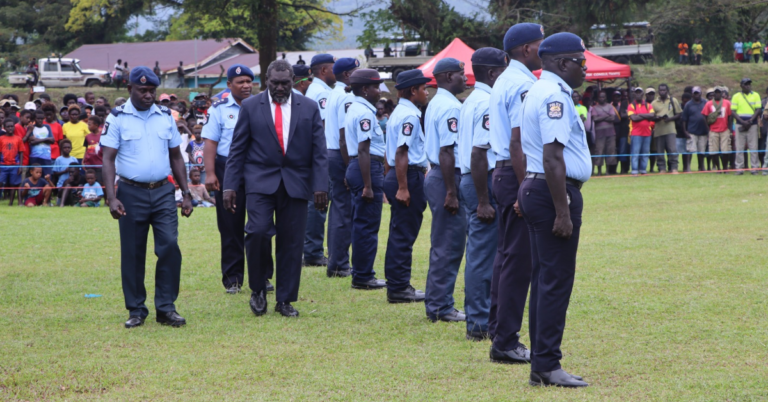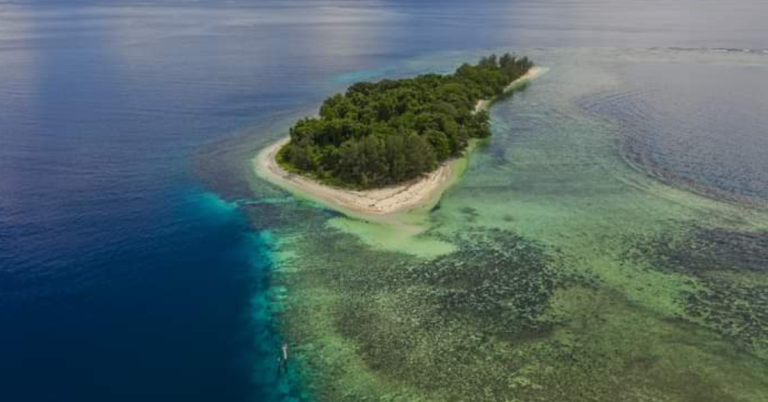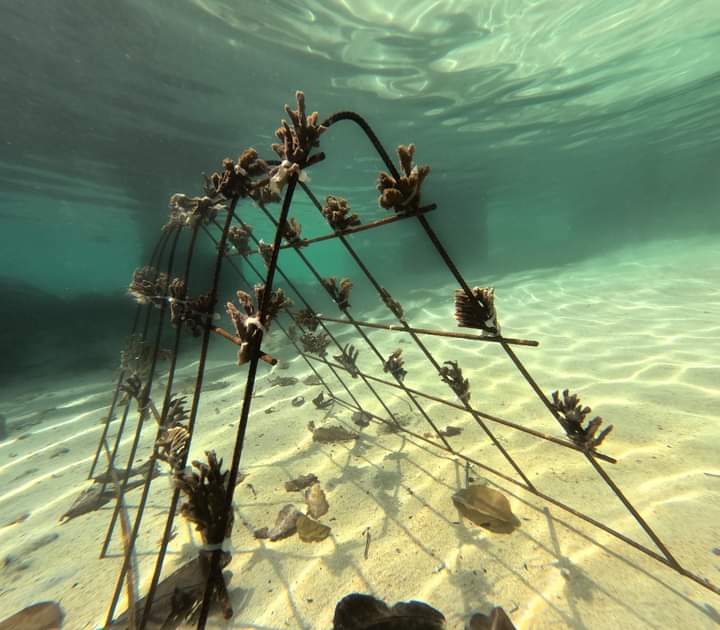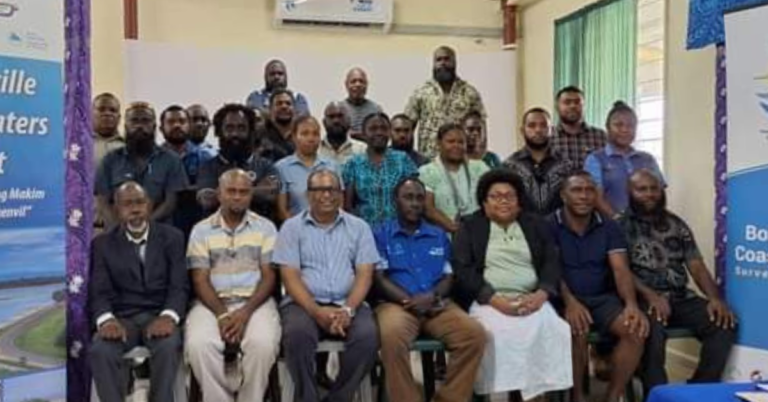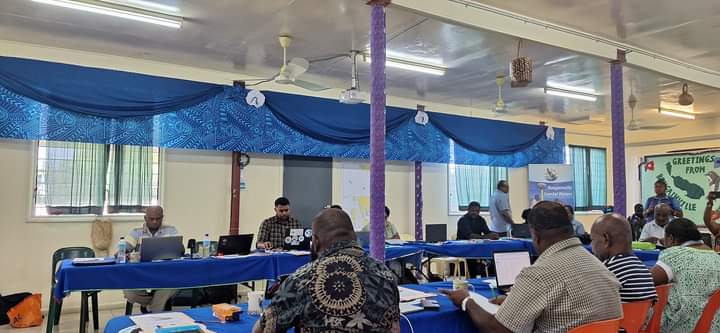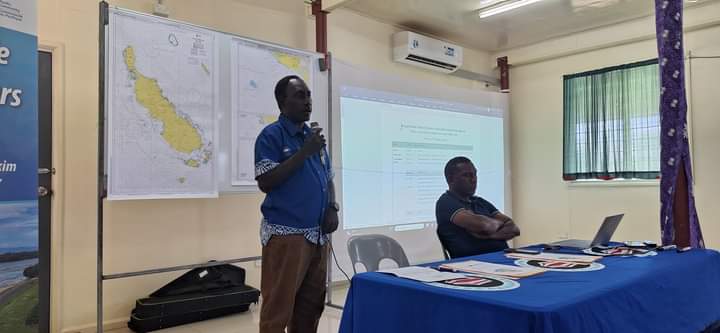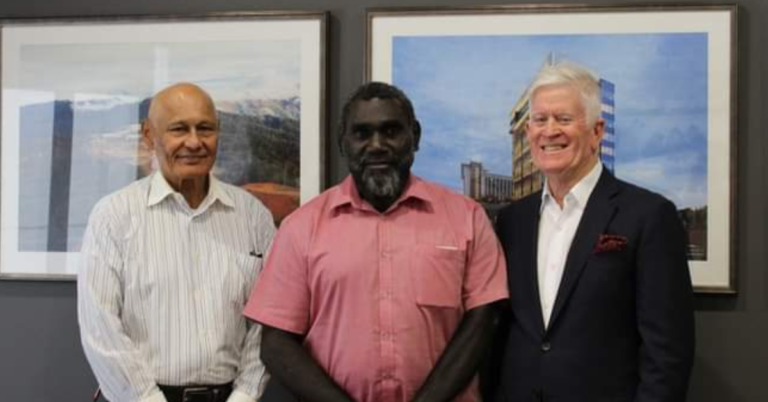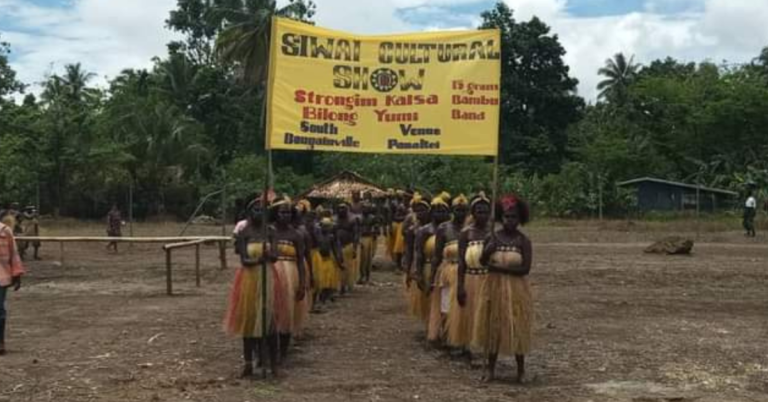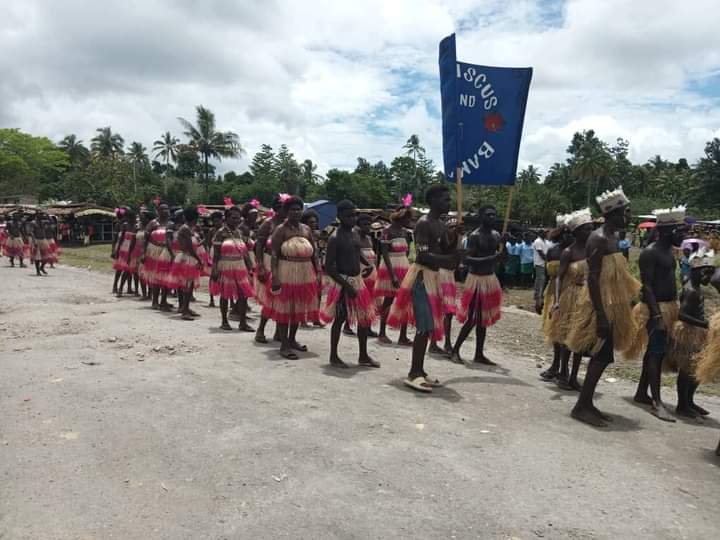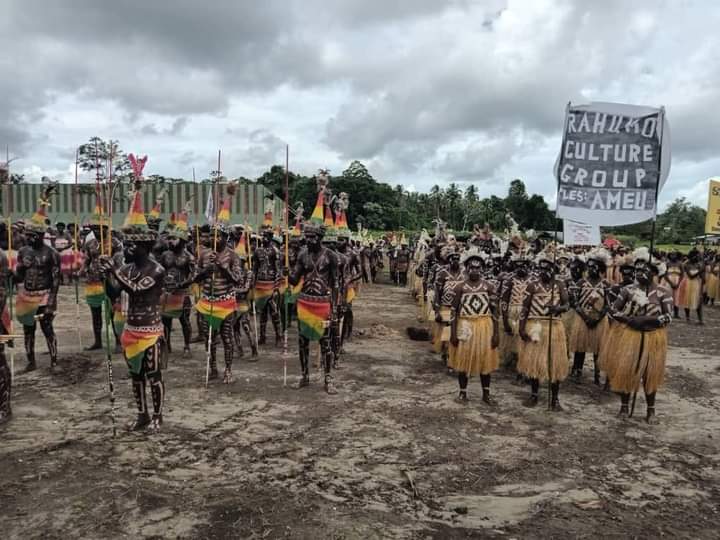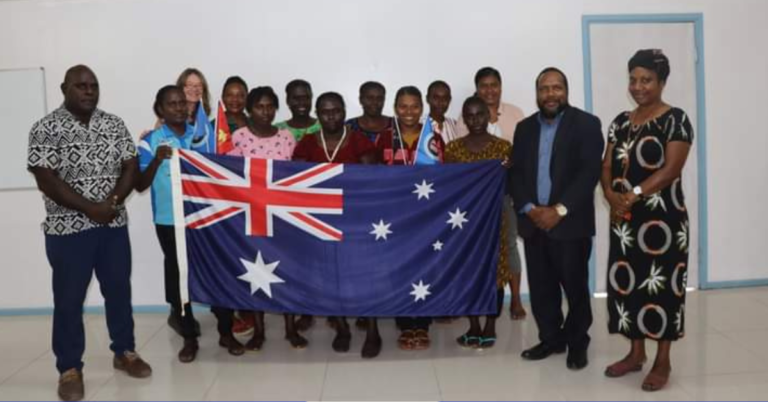by Helen Sea (InsidePNG) and Charley Piringi (In-depth Solomons)
In a significant stride towards bolstering its governance capabilities, the Bougainville House of Representatives has embarked on a week-long parliamentary attachment program with the National Parliament of Solomon Islands.
This initiative, part of a long-standing inter-parliamentary cooperation, underscores Bougainville’s commitment to strengthening democratic institutions as it navigates its post-referendum path.
The visiting delegation, comprising Peter Topura, Clerk of the Bougainville House of Representatives; Adrian Hihiru, Assistant Legal Counsel; and Wesley Porake, Director of Finance and Administration, represents a focused effort to gain practical insights from a fellow Pacific Island nation.
A FOUNDATION OF REGIONAL COOPERATION
The attachment is a direct outcome of a parliamentary twinning arrangement established in 2007 under the Commonwealth Parliamentary Association’s Pacific Twinning Program.
This partnership, which also includes the Parliament of New South Wales (NSW), Australia, aims to strengthen institutional capacity, promote democratic governance, and nurture regional parliamentary cooperation.
Clerk of the National Parliament of Solomon Islands Jefferson Hallu explained that under the twinning program “each state parliament in Australia is paired with one or two island countries in the Pacific.”
“The main aim is to foster collaboration, knowledge-sharing and capacity building. It’s something that is important in our legislatures,” he added.
“Apart from Australia, there are only other Pacific countries and in order for ‘Birds of the same feather to flock together’, we have to collaborate, share our common challenges and learn from each other, strengthen the democratic processes and procedures and in a way, strengthen Pacific parliaments and the parliamentary democratic process.”
Hallu noted that past activities under the twinning program typically took place in Sydney, Australia.
“The activities we have engaged in the past include, training placements, we’ve had good opportunity to be placed with respective departments in the more matured jurisdictions in New South Wales; and NSW has sent colleagues to us.”
BHOR’s visit to the Solomon Islands is a first of its kind within their twinning partnership and it has been very exciting and insightful.
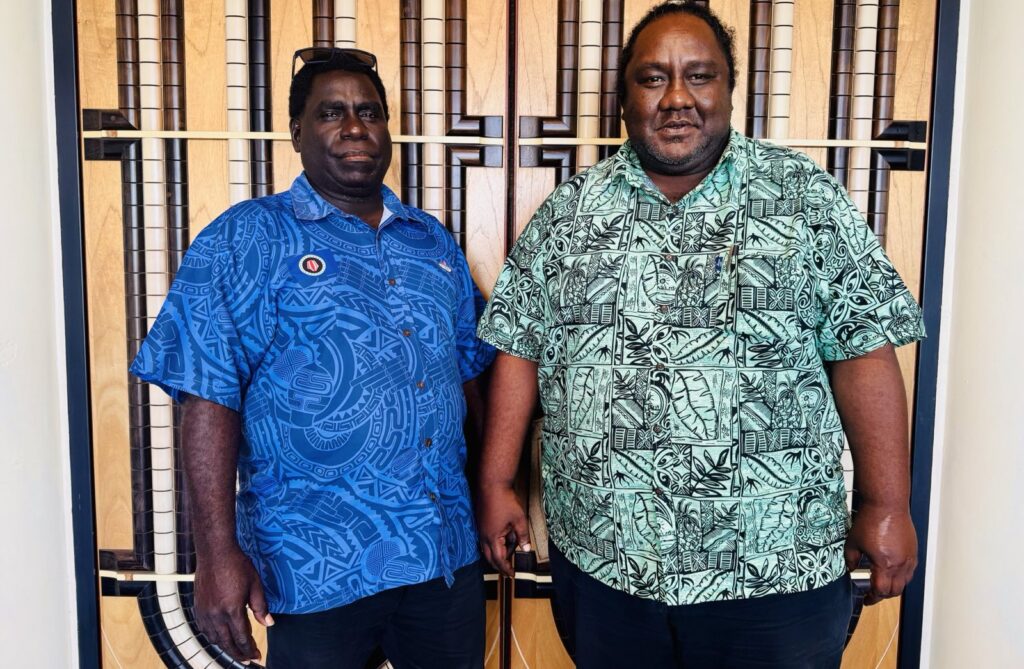
Clerk of the Bougainville House of Representatives, Peter Topura said, the visit by BHOR had a focus on committee work and procedure, however, he has now decided to include the Finance aspect in Parliamentary service to their list of learnings.
“Now my thoughts are to include the finance aspect in parliamentary service so we can understand how parliamentary service finance works in parliamentary procedures and legal service work here in the Solomon Islands.
“Because our focus is to learn and twinning is part of collaboration and learning from each other.
“In Papua New Guinea, we have a parliamentary partnership with the National Parliament and we do an attachment with PNG, that is within the country. This one is outside of the country under the Commonwealth Parliamentary Association,” Topura added.
He explained that BHOR joined the CPA in 2006 and has since attended various conferences, seminars, and workshops.
When the twinning concept was introduced in 2007, BHOR officially became part of the partnership in 2010.
Both Hallu and Topura, who were appointed between 2024 and 2025, said the partnership has helped them exchange knowledge and grow professionally and contribute to their respective parliaments.
GAINING PRACTICAL EXPERTISE FOR BOUGAINVILLE’S FUTURE
Throughout their time in Honiara, the Bougainville officials are engaging directly with key departments of the National Parliament of the Solomon Islands.
This immersive experience is designed to provide first-hand insights into the administrative, procedural, and legal functions vital for effective parliamentary operations.
Meetings are scheduled with the Parliamentary Procedure Office, Finance and Administration, Committee Secretariat, Library, Research and Information services, Public Engagement Department (including Civic Education and Media), and the Hansard Department.
When asked about their specific objectives for the attachment, Topura shared, “in terms of politics and what we do at the Parliamentary level, we are more focused on building parliaments, that’s what we do”.
“In terms of finance, how parliament is supported by the Government in doing its work; committee work and supporting members constituency responsibilities.
“In terms of procedures we are understanding how bills are brought to parliament and what stages they go through and basically how the parliament prepares its bills; where does it go until the bill is passed.”
The delegation expressed optimism about applying these learnings to Bougainville’s unique context.
Topura said context in any situation, any location can be different but the processes of any parliament remain the same.
This targeted learning is particularly crucial as Bougainville continues its journey towards greater autonomy and self-determination.
BUILDING RESILIENT INSTITUTIONS
Hallu and Topura also reflected on the broader challenges and opportunities facing their respective Houses.
“One of the values we hold dear to our work in Parliament is to remain apolitical and not to let political convictions and abuse affect our work as a staff of parliament,” said Hallu.
In the same tune, Topura added that their roles are to be impartial and neutral at all times, however, within the Melanesian societies where our ways are deeply rooted to our culture, it poses the biggest challenge.
He said in Australia, they’ve barely seen this as much of a challenge, hence amplifying the significance of their partnerships with the PNG and Solomon Islands parliaments.
“That’s something we are working on and discussing with the PNG National Parliament and Solomon Islands National parliament, we want to learn how to deal with this.”
A MESSAGE OF COLLABORATION
This visit reaffirms the unwavering commitment of both the Bougainville House of Representatives and the National Parliament of Solomon Islands to ongoing collaboration and mutual learning.
For the National Parliament of Solomon Islands, hosting such programs also offers reciprocal benefits.
“Now we are in discussions on how we can work together, and they (SINP) can come to Bougainville as part of the Twinning Program,” said Topura.
In agreement, Hallu said “SINP is looking forward to strengthening the partnerships by reciprocating visits and exchanges between the BHOR and SINP.”
Looking ahead, the commitment to regional stability and democratic development remains paramount.
And while they appreciate the support and training from international relations including that they have received in twinning placements in NSW parliament, both BHOR and SINP agree that greater collaboration among Melanesian nations and the wider Pacific region is crucial to strengthening regional unity and stability.
Ultimately, this attachment program underscores the vital role of regional partnerships in building resilient parliamentary institutions, laying crucial groundwork for Bougainville’s self-governing future and reinforcing the Solomon Islands National Parliament’s contributions to a stronger, more democratic Pacific.
An InsidePNG and In-depth Solomons Collaboration.
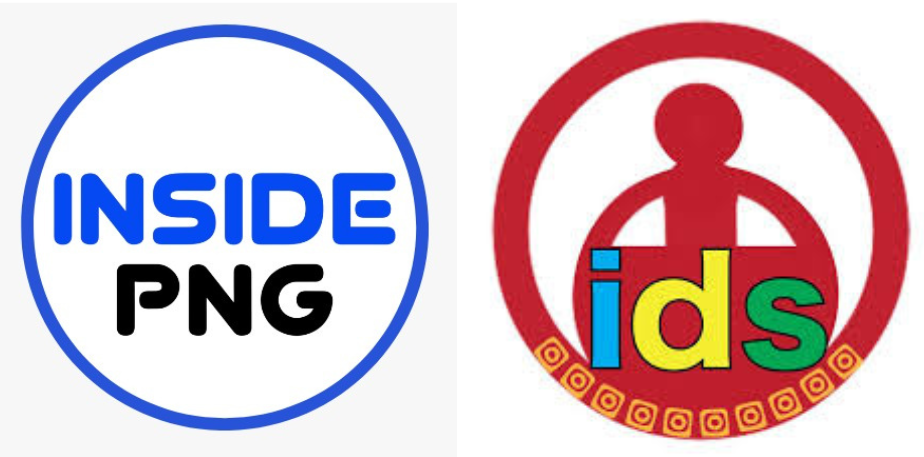



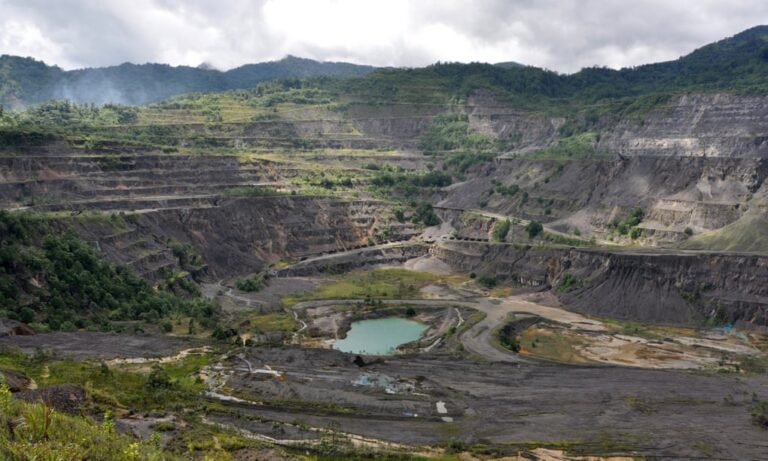
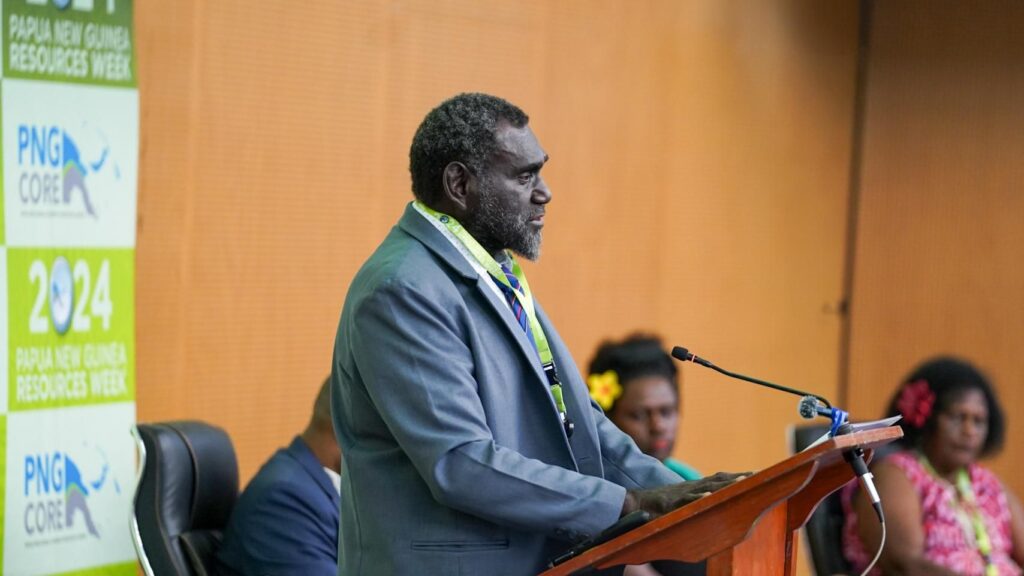
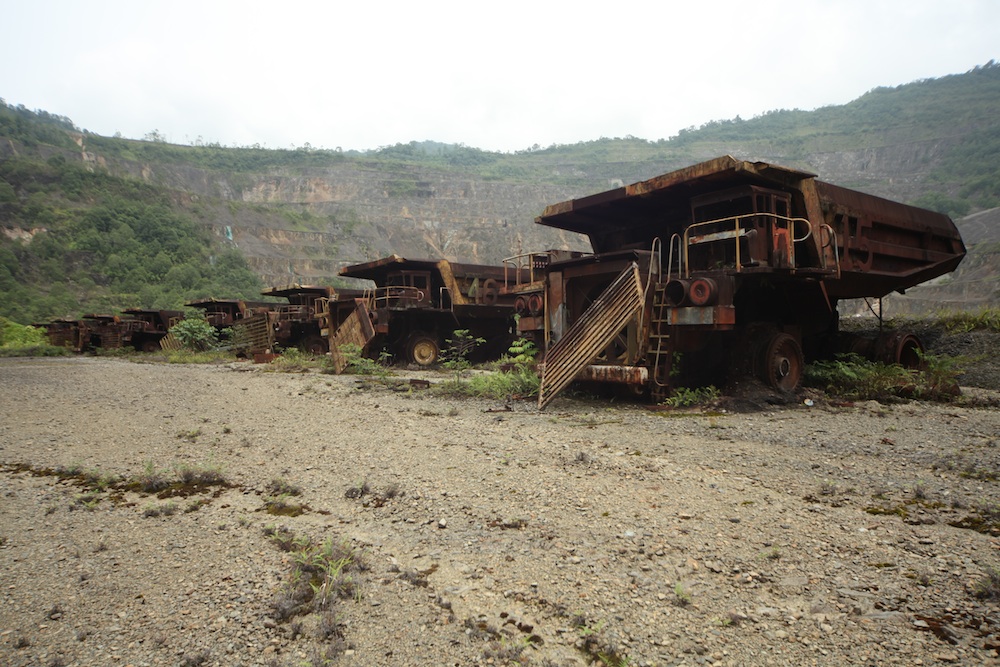
![Panguna Mine. [[Photo//Llane Munau]]](https://insidepng.com/wp-content/uploads/2024/07/WhatsApp-Image-2024-07-13-at-13.10.52.jpeg)
